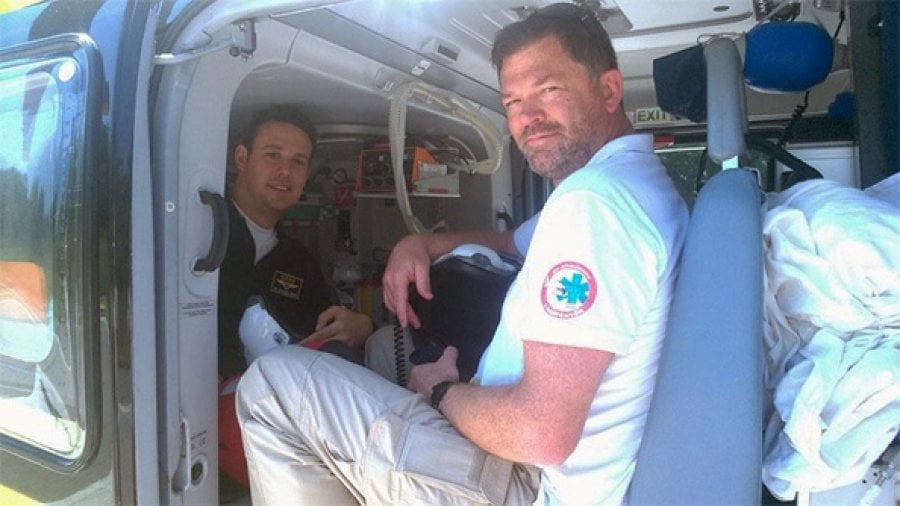Studying the Diploma in Tropical Nursing - Aebhric's story
10 May 2021 London School of Hygiene & Tropical Medicine London School of Hygiene & Tropical Medicine https://lshtm.ac.uk/themes/custom/lshtm/images/lshtm-logo-black.png
Aebhric at the Hungary Helicopter Emergency Medical Service unit based in Budapest.
Please explain a bit about your academic/professional background
I am a board-certified Critical Care Paramedic. I have worked as a Wilderness Psychologist but I am currently the Executive Dean for the College of Remote and Offshore Medicine Foundation.
Why did you choose to study the Professional Diploma in Tropical Nursing (PDTN) course with us?
For the past few years, I have been trying to schedule the PDTN course dates into my academic schedule. The PDTN has been a goal of mine ever since I ran into LSHTM students at Kilimanjaro Christian Medical University College in Moshi, Tanzania. They were on the Diploma in Tropical Medicine & Hygiene (DTM&H) programme and I chatted with students as well as instructors. I was immediately hooked. As a paramedic, my options for enrolment were open for the PDTN which offers the majority of the lessons taught on the DTM&H programme. I have been pursuing the PDTN ever since.
Can you describe a typical day on the course?
I did the first all-virtual PDTN programme in 2020. We met each Wednesday online. It was beneficial to meet with the 60+ other delegates as we went through the programme. We have our own WhatsApp group that is still active.
What is the teaching like at LSHTM?
The faculty is top-notch. They offer fantastic tuition via the online format. One exceptional feature was the virtual laboratory sessions. LSHTM has successfully moved laboratory learning into an online format using H5P interactive learning. We learned the specimens found during a normal, classroom-based programme.
How did you find studying the course online?
Online learning was easy to adapt to and now that we are one year into this pandemic, everyone is used to the new academic realities. LSHTM are one of the leaders of this transition. The PDTN has moved seamlessly into a virtual format.
I prefer the virtual format because I can access the lessons at any time to review. It is helpful to be able to pause the recording whilst I am taking notes.
How would you describe the PDTN student body from your cohort? Were you able to connect with other students?
We have had a splendid cohort. We continue to keep in touch via WhatsApp and have daily chats on who is getting jobs using the PDTN qualification. During the programme, the cohort was profoundly helpful with sharing learning modalities and content.
What skills have you gained from the course?
My knowledge of tropical diseases has vastly increased. Additionally, my lab skills have benefited from the virtual labs during the PDTN. I have been using a microscope for a few years now but it was the PDTN that improved my parasite diagnosis skills.
What are you planning to do next, and how will the course help in your career?
I took this course to better my own knowledge base and to see if the PDTN will benefit our BSc Remote Paramedic Practice students. After taking the PDTN, I am now suggesting this programme for all paramedics who would like to work in remote, austere or resource-limited environments. Additionally, the College of Remote and Offshore Medicine Foundation will pay the PDTN tuition for any of our faculty who would like to enrol onto the LSHTM programme.
What advice would you give to someone considering studying the PDTN?
The PDTN challenges you by giving tuition in the clinical aspect of tropical diseases and the practice of healthcare in resource-limited environments. Now that they have moved into a virtual format, there is no reason for a healthcare professional to miss this fantastic programme.
